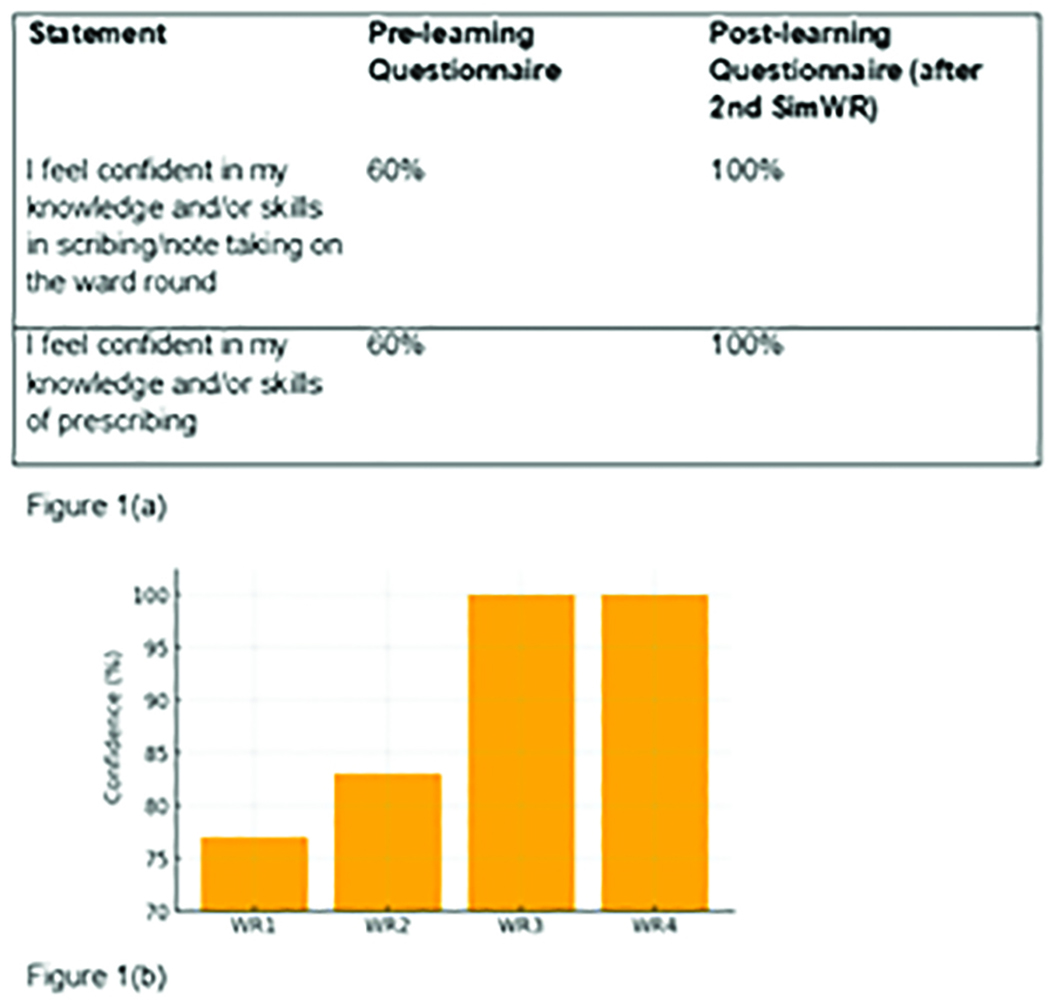
Foundation doctors are expected to perform key ward-based tasks from the outset of clinical practice. However, clinical attachments alone may not provide consistent opportunities for skill development. Simulated ward rounds (SimWR) offer a standardised educational experience to supplement clinical placements. Previous literature highlights potential benefits of simulated ward activities, but call for further high-quality evidence [1]. Building on prior work [2], we developed an expanded SimWR programme, evaluating its impact on final-year medical students’ confidence with presenting cases – testing prescribing and both verbal and written documentation skills.
SimWR sessions were conducted in a newly-opened, 10-bed simulation ward on campus. Educational learning objectives were aligned with GMC and medical school undergraduate curricula requirements. Students were presented with an overnight completed clerking based on core medical conditions and were tasked to:
•Present the patient to a senior decision-maker (role-played by consultants/ ST-level (post-MRCP) faculty members),
•Document the simulated ward round encounter
•Complete appropriate prescribing activities.
Each session concluded with structured debriefing focused on the three tasks. Initial learner confidence was assessed pre- first session, with post- questionnaires after subsequent SimWR. Confidence was rated using Likert scales. All participants self-selected for involvement; no exclusion criteria.
Ethical approval for this study was granted by the Research Ethics Committee, College of Health and Life Sciences (HLS), Aston University (REC ID: HLS21212).
Pre- and post-intervention questionnaires demonstrated significant improvement in reported confidence (see Figure 1):
•Confidence in documentation and prescribing rose from 60% pre-intervention to 100% following two SimWR sessions.
•Confidence in presenting to seniors increased from 77% after the first session to 100% by simulations 3&4.
These improvements were sustained across the remainder of the programme.
SimWR meaningfully enhanced final-year students’ confidence in core ward tasks, supporting their preparedness for clinical roles. Although limited by small sample size and self-selection for participation, the findings contribute to growing evidence supporting the integration of SimWR into undergraduate medical curricula. Future work should explore objective measures of performance and scalability to broader student cohorts.
As the submitting author, I can confirm that all relevant ethical standards of research and dissemination have been met. Additionally, I can confirm that the necessary ethical approval has been obtained, where applicable.
1. Le K, Fagerlund AJ, Peacock O, Mercer SJ, Bissett I. The impact of simulated ward rounds on the clinical education of final-year medical students: a systematic review. Int Med Educ. 2024;3(1):100–115.
2. Hassan-Smith G and Rowe N. Simulated Ward Round (SimWR) for Final Year Medical Students. Presented at: ASPiH Annual Conference; 2024 Nov 3–5; Edinburgh.

